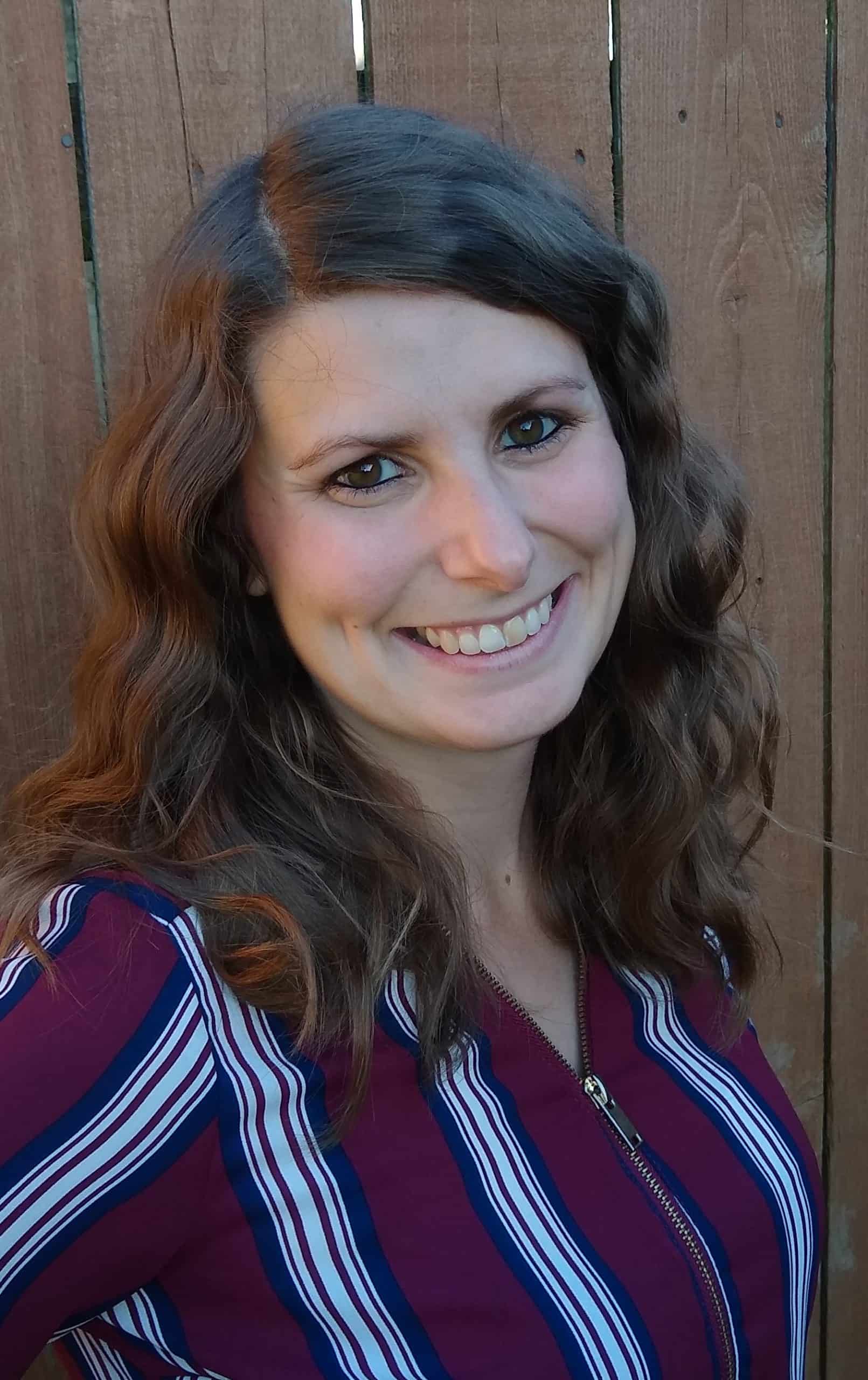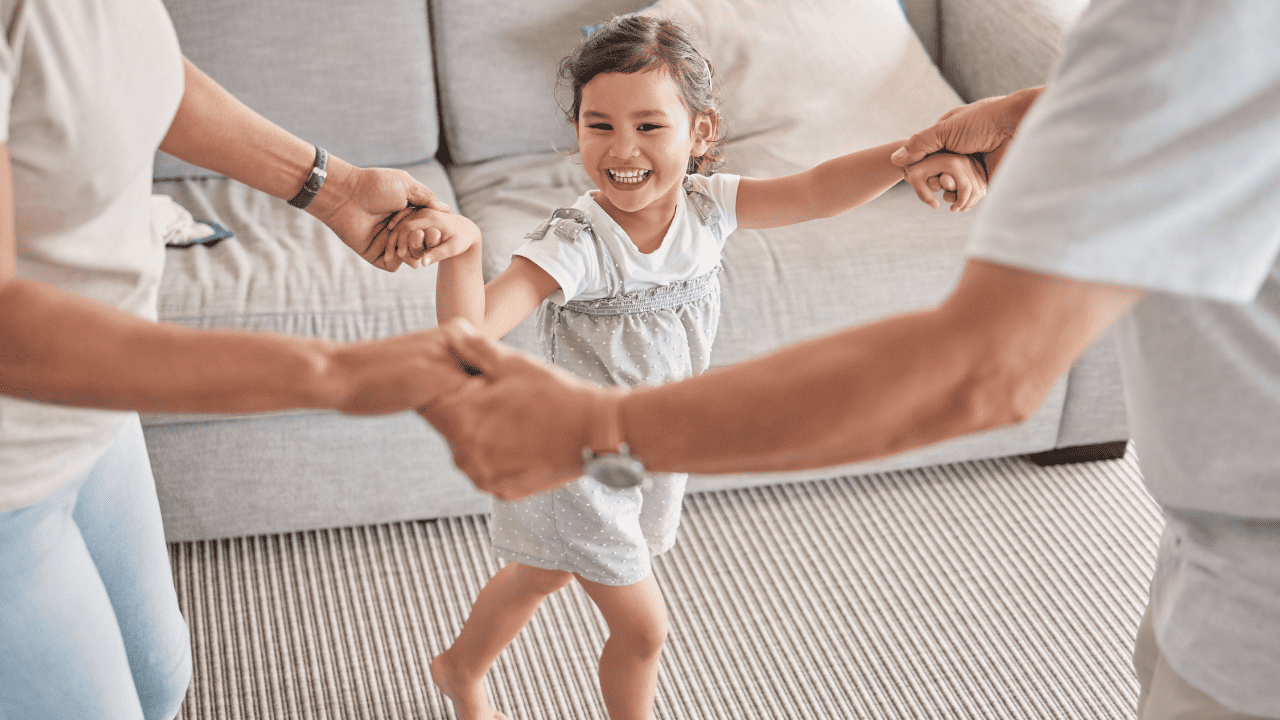 | | | | About the Author Rachel Cook has been a Product Development Specialist at Great Kids® since 2017. Her passion for helping strengthen families is prevalent in her curriculum content creation. Before joining Great Kids, she worked as a home visitor with Kentucky HANDS. She lives in Berea, Kentucky, with her husband and new baby, where she loves writing and exploring nature. Contact Rachel at rcook@greatkidsinc.net. |
As we kick off 2023, let’s take some time to celebrate. Let’s talk about music! For as long as I can remember, I’ve loved music. As a child, I would sit at my desk with my boom box, changing out CDs as I pretended to be a radio DJ. The name of my very successful radio station was XYZ the Dog. Yes, you read that correctly. I’m choosing to take pride in this creative idea stamped by my childhood. When I wasn’t working as a radio DJ, I was busy trying to mimic the dance moves of my favorite bands. I would watch them intently, trying to learn their choreography to prepare for the upcoming “concert” I would perform that evening. No shame here. I’m taking pride in that piece of my childhood as well.
Over the years, I became more self-aware and realized my musical abilities needed work. At the time, I wasn’t familiar with a growth mindset or the belief that I had the ability to grow my dance skills.
As a result, I gave up on learning to dance, but my love for music never faded.3,6 Blasting my favorite songs through my headphones while running outside became one of my favorite activities, and it still is today. However, since becoming a parent, I’ve seen that inner child coming to life again. I’m not embarrassed to dance anymore. It’s one of my favorite ways to play with my baby. Suddenly, I can sing too! My child thinks my voice echoing from wooden spoons and water bottles sounds quite pleasant. Even though I’m not the most skilled musician, it turns out that it doesn’t matter.
Experts agree that children LOVE music, and despite a person’s musical talents, kids enjoy hearing the singing voice of the ones they love most.1,4
Sharing musical moments with children is a way for parents to express their love and share in joyful interactions, nurturing stronger connections between them and their kids.4,5 In addition to the strong bond that music can form between parents and children, it can also invite kids to learn a multitude of skills. For example, singing to children can support them in managing their emotions and contributes to laying the foundational skills kids will need to one day to learn how to self-regulate or manage their feelings and behaviors.2,5
Music can also encourage kids to grow their physical skills. Imagine the growth of the small muscles the child uses to grasp the mallets as they pound on a xylophone or the large muscles they strengthen as they excitedly break out in dance to their favorite tunes.1,4,5
Plus, songs can be an invitation to learn new words and a chance for kids to develop stronger memories as they remember their favorite melodies and lyrics.1,4,5 These are only a few benefits of introducing children to music. The research and list of payoffs are quite expansive. However, one finding is clear after pouring through information about song and dance.
Music has a place in children’s lives and their development journeys.
As you take on this year (and every year that follows), I encourage you to sing and dance. One day you’ll realize the child you love so dearly is now too old to pick up and spin around or dip back as they laugh vigorously. That day will come way too fast. So, break out in dance and sing your favorite songs with the kids in your life. They’ll eventually be too big to pick up and hold, but they’ll never be too old to sing and dance. The bond you strengthen with them through all the years of shared musical moments will last a lifetime. It’s a gift you can give your child that they’ll never outgrow.
References
1. Bolduc, J., & Evrard, M. (2017). Music education from birth to five: An examination of early childhood educators’ music teaching practices. Research & Issues in Music Education, 13(1), Article 3. https://eric.ed.gov/q=Music+Education+From+Birth+to+Five%3a+An+Examination+of+Early+
Childhood+Educators%e2%80%99+Music+Teaching+Practices&id=EJ1151097
2. Castro, D. T. (2018, November 2). The benefits of music in child development. Cornell University. https://blogs.cornell.edu/ccesuffolkfhw/2018/11/02/the-benefits-of-music-in-child-development/
3. Dweck, C. S. (2006). Mindset: The new psychology of success. How we can learn to fulfill our potential. Ballantine Books.
4. Head Start Early Childhood Learning & Knowledge Center. (2021, November 12). News you can use: Music (part 1). U.S. Department of Health & Human Services & Administration for Children & Families. https://eclkc.ohs.acf.hhs.gov/curriculum/article/news-you-can-use-music-part-1
5. Parlakian, R. (2016, August 8). Beyond twinkle, twinkle: Using music with infants and toddlers. Zero To Three Early connections last a lifetime. https://www.zerotothree.org/resource/beyond-twinkle-twinkle-using-music-with-infants-and-toddlers/ 6. Stanford Alumni. (2014, October 9). Developing a growth mindset with Carol Dweck [Video]. YouTube. https://www.youtube.com/watch?v=hiiEeMN7vbQ


